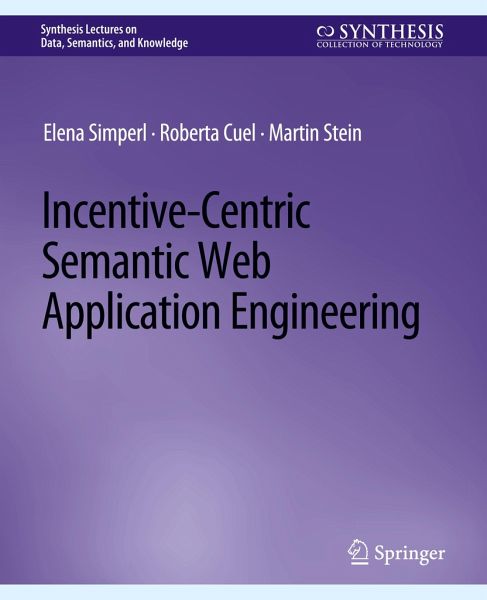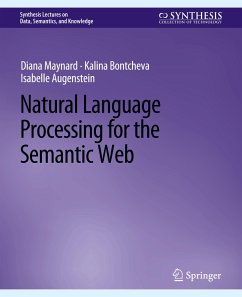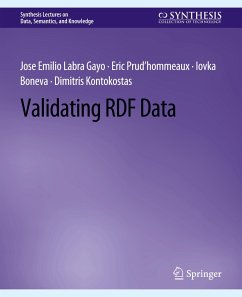
Incentive-Centric Semantic Web Application Engineering

PAYBACK Punkte
0 °P sammeln!
While many Web 2.0-inspired approaches to semantic content authoring do acknowledge motivation and incentives as the main drivers of user involvement, the amount of useful human contributions actually available will always remain a scarce resource. Complementarily, there are aspects of semantic content authoring in which automatic techniques have proven to perform reliably, and the added value of human (and collective) intelligence is often a question of cost and timing. The challenge that this book attempts to tackle is how these two approaches (machine- and human-driven computation) could be...
While many Web 2.0-inspired approaches to semantic content authoring do acknowledge motivation and incentives as the main drivers of user involvement, the amount of useful human contributions actually available will always remain a scarce resource. Complementarily, there are aspects of semantic content authoring in which automatic techniques have proven to perform reliably, and the added value of human (and collective) intelligence is often a question of cost and timing. The challenge that this book attempts to tackle is how these two approaches (machine- and human-driven computation) could be combined in order to improve the cost-performance ratio of creating, managing, and meaningfully using semantic content. To do so, we need to first understand how theories and practices from social sciences and economics about user behavior and incentives could be applied to semantic content authoring. We will introduce a methodology to help software designers to embed incentives-minded functionalities into semantic applications, as well as best practices and guidelines. We will present several examples of such applications, addressing tasks such as ontology management, media annotation, and information extraction, which have been built with these considerations in mind. These examples illustrate key design issues of incentivized Semantic Web applications that might have a significant effect on the success and sustainable development of the applications: the suitability of the task and knowledge domain to the intended audience, and the mechanisms set up to ensure high-quality contributions, and extensive user involvement.Table of Contents: Semantic Data Management: A Human-driven Process / Fundamentals of Motivation and Incentives / Case Study: Motivating Employees to Annotate Content / Case Study: Building a Community of Practice Around Web Service Management and Annotation / Case Study: Games with a Purpose for Semantic Content Creation / Conclusions














